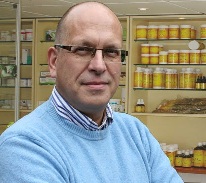Im JANUAR 2024 – von Dr. Peter Boskamp…

Impfen – ja oder nein?
Die meisten Fragen der letzten Monate betrafen noch immer die Paratyphus-Problematik. Ich habe das Thema schon mehrfach von verschiedenen Seiten diskutiert, aber die Fragen kommen immer wieder.
Es scheint noch viel Verwirrung zu diesem Thema zu geben. Dies liegt unter anderem daran, dass die Meinungen der Taubenärzte zu diesem Thema sehr unterschiedlich sein können. Es gibt und wird Tierärzte geben, die beim Nachweis einer Paratyphus-Infektion sofort raten, alle Tauben zu kurieren und die Tauben danach zu impfen oder auch nicht.
Ich nenne das die Pasteur-Schule. Die meisten Tierärzte gehören dieser „Schule“ an. Auch ich gehörte viele Jahre dazu. Die Befürworter dieses Ansatzes sind seit vielen Jahrzehnten in der Mehrheit. Vielmehr gehören fast alle Taubenärzte und Tierärzte im Allgemeinen der „Pasteur-Schule“ an. Pasteur ist ein Gigant in der Bakteriologie. Seine Meinung ist seit Jahren mehr oder weniger Gesetz. Pasteur hielt an der sogenannten Germ-Theorie fest. Das bedeutet, wenn ein Tier ein Bakterium hat, ist es für die entstehende Krankheit verantwortlich.
Diese Einsicht wurde mir auch mit der Muttelmilch vermittelt, so wie fast jedem Tierarzt und Arzt. Es macht auch Sinn. Wenn ein Tier oder eine Taube krank, ernsthaft krank ist und bei dieser Taube ein Paratyphus-Bazillus gefunden wird, dann ist es mehr als logisch, dass wir eine Taube gegen dieses Bakterium mit einem Antibiotikum behandeln, um zu verhindern, dass das Tier stirbt. Da diese Taube normalerweise nicht alleine auf dem Schlag ist, rieten viele Tierärzte sofort dazu, alle Tauben „vorbeugend“ zu behandeln, auch wenn sie nicht krank sind.
Wie gesagt, ich habe auch jahrelang dazu geraten und in älteren Newslettern von mir kann man diesen Rat noch lesen. Das lag zum einen daran, dass wir als Tierärzte das alle so gelernt haben und zum anderen daran, dass alle Taubendoktoren das so gemacht haben. Aber wir sollten die Wahrheit nicht immer mit der Meinung der Mehrheit verwechseln. Die Meinung einer Mehrheit ist oft richtig, aber nicht immer die Rettung.
Es hat mich ziemlich frustriert, dass Züchter mit einem guten Mittel gegen Paratyphus eine Kur gemacht hatten, dann aber einen guten Monat später wieder auftauchten, weil sie bei etlichen Tauben wieder Paratyphus hatten. Zunächst achtet man bei der Wahl des Medikaments auf ein Wiederauftreten der Erkrankung. Dieses Phänomen könnte aber auch auftreten, wenn ein Empfindlichkeitstest durchgeführt worden wäre. Den Tauben ging es dann oft schlechter als vor der ersten Behandlung. Oft mehrere Tauben mit dicken Ellbogengelenken.
Es ist seit langem bekannt, dass Paratyphus mit Antibiotika allein in vielen Fällen nicht in den Griff zu bekommen ist. Im Falle eines klinischen Ausbruchs von Paratyphus raten viele Tierärzte dazu, die Tauben gegen diese Krankheit zu impfen. Nun, bei vielen Krankheiten, einschließlich Paratyphus, ist eine Impfung kein Allheilmittel. Wir können mit Sicherheit sagen, dass eine Impfung in die richtige Richtung hilft und dass bei regelmäßiger Impfung die Beschwerden langfristig zurückgehen.
Haben wir das Problem dann im Griff? Auskurieren und impfen und eventuell den Schlag desinfizieren. Ja und nein. Wir sehen aufgrund dieses Ansatzes einen Rückgang der Beschwerden und klinischen Fälle von Paratyphus. Stimmt es, dass man auf diese Weise nie wieder eine bei Paratyphus tote Tauben haben kann? Nein, das ist nicht wahr. Es ist jedoch ein Ansatz, der in die richtige Richtung hilft. Und nur dann heilt? Das empfehle ich nicht mehr. Gerade weil wir sehen, dass nach einer Kur die Beschwerden nach zwei Monaten wiederkommen können.
Was wir auf jeden Fall raten, ist, kranke Tauben individuell zu behandeln. Aber wir raten jetzt von einer vorbeugenden Behandlung aller gesunden Tauben ab. Der Grund ist einfach. Viele Medikamente, die gegen Paratyphus wirken, „wirken noch besser“ gegen die guten Darmbakterien. Letztere werden durch die eingesetzten Antibiotika meist stärker gehemmt. Dadurch wird das Darmbiom in seiner Gesamtheit geschwächt. Wenn sich der Paratyphus-Bazillus schneller erholen kann als die guten Darmbakterien, dann läuft „Pferd hinter dem Karren“.
Das bringt mich zu einem Zeitgenossen von Pasteur, Antoine Béchamps. Dieser Mann glaubte, dass Krankheiten nur dann entstehen, wenn sich Umweltfaktoren so verändern, dass Krankheitserregern Möglichkeiten gegeben werden, die sie vorher nicht hatten.
Wir alle kennen die Geschichten über Cholera und Typhus, die bei Naturkatastrophen ausbrechen können, oft in den Tropen. Sind diese Bakterien plötzlich da? Nein, natürlich nicht, sie waren schon immer da, aber durch die Naturkatastrophe sind die Umstände für sie günstiger geworden, sodass sie wieder „auferstehen“ und Krankheiten verursachen konnten.
Béchamps war daher ein Verfechter der Theorie, dass die Umweltfaktoren für die guten Bakterien verbessert werden sollten, damit die Krankheitserreger keine Chance mehr haben. Die Umsetzung dieser Theorie in die Praxis hat zur Entwicklung von Bony PreviSal geführt, das die guten Darmbakterien unterstützt und Krankheitserregern bei E. Coli und/oder Salmonellen das Leben schwer macht.
Die Bedingungen verbessern sich und das Risiko von Ausbrüchen dieser Krankheiten wird stark reduziert. Befürwortet man diese Vorgehensweise, so werden bei klinischen Fällen nur die erkrankten Tauben behandelt, sofern diese noch auftreten. Die gesamte Taubenkolonie wird dann nicht unnötig mit Antibiotika behandelt. Vergessen Sie nicht, dass Antibiotikum eigentlich für „Gegen das Leben“ steht.
Zusammenfassend also: Wenn Sie eine kranke Taube haben, dann behandeln Sie sie gegen das Leiden. Ziehen Sie bei Ausscheidern im Schlag eine Impfung in Betracht und behandeln Sie nicht alle Tauben mit Antibiotika, es sei denn, alle Tauben sind (tödlich) krank. Aber die Entscheidung, das Mikrobiom zu unterstützen, ist genau das, was den guten Bakterien mehr Spielraum gibt, um es mit den Krankheitserregern aufzunehmen.
Gleiche Krankheit, anderer Ansatz, seit 5-6 Jahren. Gesamtergebnis sehr gut. Nutzen? Kein übermäßiger Einsatz von Antibiotika und eine Verbesserung der Stärke des Mikrobioms.
Denken Sie daran: Mit einem gesunden Mikrobiom wird eine Taube viel weniger schnell krank.
Viel Glück !

Werbung:




